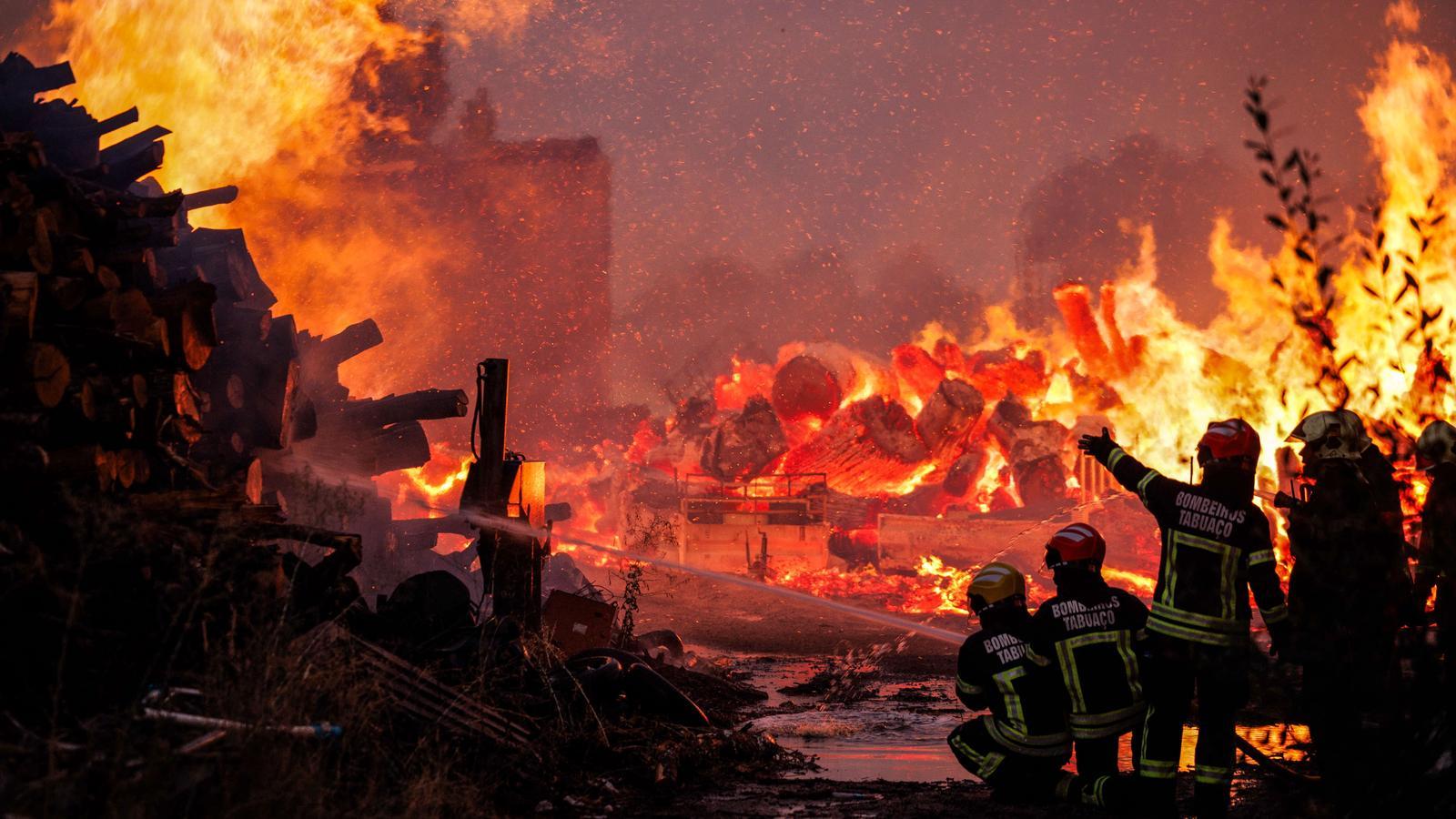

In April 1997, the writer Maria Àngels Anglada gave a conference in Olot organized by Ecofòrum, an association that defended that economic development always must be tied up to environmental awareness. Anglada's lecture —titled Nature and Greek culture—he began by explaining that the effects of human actions on forests had already been documented by the classics (who, as if they knew how to predict the future, sometimes lamented our reckless attitude). The works of the Greeks even left evidence of fires that, without the personnel or tools to fight them, could burn for months. Fires, then, have always existed. Heat, there always has been. These are the arguments used by climate crisis deniers in the face of the infernal heat we have suffered in recent years and the disasters they have brought.
The Earth's climate is changing, and we all agree on this. As long as our planet is geologically active (and biologically alive), this functioning will be unavoidable. But the existence of complex life in our corner of the universe depends on the balance of the carbon cycle. What's more, if a few decades ago scientists still thought that the major extinctions had been caused by meteorites, now everything seems to indicate that most extinctions could have been the result of alterations in the carbon cycle. Amid the rise of climate denialism, these days the newspaper The Guardian has done a sneak peek from a book by Peter Brannen about the origin of life thanks to CO₂. Among other things, The story of CO2 It's the story of everything explores the geological periods in which the Earth entered apocalyptic mode due to a destabilization of the carbon cycle. Brannen recounts how Permian volcanic eruptions created "a climate of unparalleled malevolence," in which the planet was torn between extreme heat and violent storms (a dynamic that, unfortunately, is starting to feel familiar). Volcanoes can emit huge amounts of carbon and, as a result, have the capacity to drastically alter the planet's climatic conditions.
Although the CO₂ overdose that led to the Permian mass extinction occurred 300 million years ago, it offers us many clues as to what awaits us if we continue burning fossil fuels. Because there are only a few ways to release gigatons of carbon from the planetary crust into the atmosphere: on the one hand, we have the highly disruptive volcanic spasms that occur approximately every 50 million years; on the other, we have capitalism. And although the grandiose events of the Permian are not comparable to anthropogenic actions, what is dangerous is the extremely short period of time—if we think in terms of geological temporality—in which we have released so much carbon. But neither these data, nor the heat, nor the uncontrolled fires, nor the storms seem to convince the deniers that we are living in a situation of exceptionality of our own making. This is so, in part, because there has been a progressive disaffection between the more conservative political world and the academic and scientific world. The Trump administration's decisions regarding environmental policies and research funding confirm that the right's lack of faith in the scientific community is increasingly pronounced (perhaps part of the Trumpist madness is a result of this rupture that is only just beginning to unfold).
How did we get to this situation? What led us to this radical split in which decision-making no longer takes into account the theories constructed in universities and research centers? It's a complex and obvious issue, but there are some reasons that are perhaps more evident. On the one hand, it seems that the right has long been promoting the impression that scientific sectors are migrating more to the left, which makes them doubt their reliability. This feeling surely began when environmentalism entered the academic system with force in the early 1970s. One of the turning points must have been the report. The limits to growth (1972), commissioned by the Club of Rome from a research group at MIT (Massachusetts Institute of Technology) led by Donella Meadows. Meadows's text warned that if we failed to consider the planetary economy—which has to do not with economic resources, but with natural ones—we would put our survival at risk. From there, numerical evidence led a large part of the scientific community to reinforce these theses. Thus, we have reached a situation in which some simply want to continue their program toward some unknown utopia, ignoring the warning signs, and others write warnings that receive little attention (except, of course, from the sensationalist ones). Furthermore, the internet cancel culture of recent years has not fostered dialogue, which, even when uncomfortable, is essential.
As the divide between the two—polarization, as we now call it—widens, we move closer to the "malevolent" climate that could ultimately trigger a planetary system failure.
